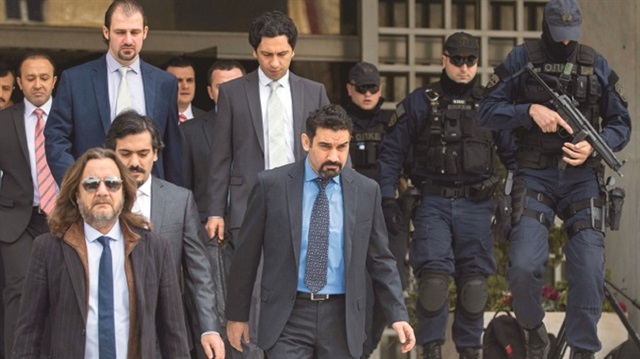

Ankara's request for the extradition of 50 terrorists from various terrorist organizations in the last decade has been rejected by Athens
Greece, which has become a base for terrorist organizations, rejected Turkey's calls for the extradition of 50 terrorists affiliated with groups such as the Kurdistan Workers' Party (PKK), Revolutionary People's Liberation Party-Front (DHKP-C) and the Fetullah Terrorist Organization (FETÖ).
According to the Turkey's Justice Ministry, 24 DHKP-C, eight FETÖ, six Revolutionary Left (DEV-SOL), one Hezbollah, one PKK, one People's Liberation Party-Front of Turkey (THKP-C) and members of other terrorist organizations are still in Greece.
On Thursday, the Greek Supreme Court ruled against the extradition of all eight Turkish soldiers who fled to Greece in a Blackhawk helicopter seeking political asylum following the failed July 15 coup attempt in Turkey.
The court decision may only be appealed at the European Court of Justice.
The soldiers that fled are members of FETÖ, the group behind the coup plot.
Meanwhile, Ankara pressed the button for a draft bill which will pave the way for revoking the citizenship of the fugitive FETÖ members, if the terrorists do not return to Turkey in the time period that will be determined, Turkey's Daily Sabah newspaper reported.
The bill will be part of statutory decrees adopted after the implementation of the state of emergency in the wake of the coup attempt.
Ankara's move followed Turkish President Recep Tayyip Erdoğan's call, "If they fled to another country, I advise them to acquire the citizenship of that country. They will no longer be remembered as citizens of this country."
FETÖ terrorists are led by U.S.-based Fetullah Gülen, who is the mastermind behind a long-running campaign to overthrow the state through the infiltration of Turkish institutions, particularly the military, police and judiciary.
Turkey has been conducting an extensive investigation into FETÖ following the July 15 coup bid, which targeted the democratically-elected Turkish government.
#FETÖ
#Greece
#Turkey


